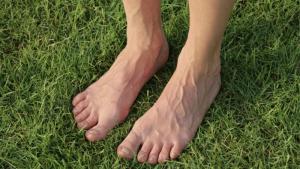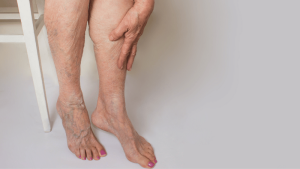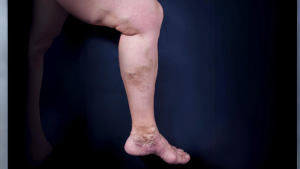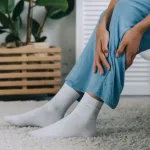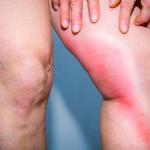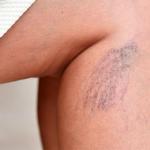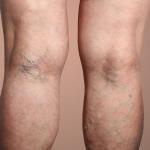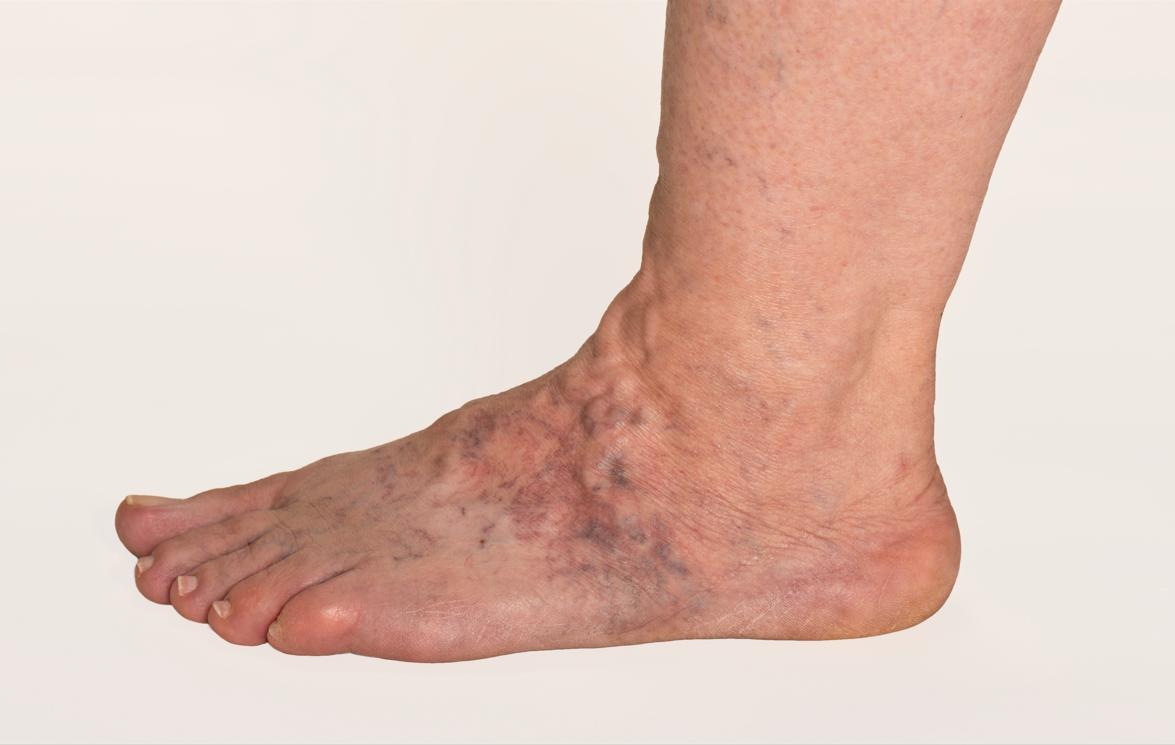
Bulging veins in the feet can be a sign of a vein condition like varicose veins. However, other, non-medical factors might cause your veins to pop out.
Knowing what might be behind veiny feet can give you peace of mind, but it can also help you decide when you should see a vein specialist. At USA Vein Clinics, our doctors will examine your veins and offer a diagnosis and a personalized treatment plan to help restore your vein health.
Why Are My Feet Veins Popping Out?
You might notice bulging veins suddenly appearing on the top of your feet after sitting or standing for too long. That’s because venous blood flow in the lower extremities, particularly the feet, undergoes the most pressure due to gravity. When there’s additional pressure from other causes, such as a lack of movement or thicker blood, vein walls can stretch, causing the veins to bulge at times.
When you lie down and raise or elevate your legs, the veins might be less visible. That happens because raising your legs relieves the pressure on the veins in your feet.
Ultimately, it’s increased pressure on vein walls that leads to bulging veins. Some of these causes are temporary and can be easily addressed, while others are chronic and may require treatment.
Everyday Causes of Bulging Veins in the Feet
Prolonged standing or sitting is one of the most common causes of veiny feet and bulging veins. Other factors that can contribute to veins bulging include the following:
- Dehydration: Without enough fluid in the body, your blood volume decreases and the consistency of your blood thickens, making it harder for your veins to pump blood.
- Warm temperatures: When the weather is hot, your blood vessels widen/expand to allow blood to flow, which can make your veins appear more prominent.
- Tight-fitting shoes: If your footwear is too tight, it can restrict blood flow to your feet, causing the veins in your feet to look like they’re popping out.
All of these potential causes can be temporary. If you put your feet up or get up to stretch or walk around when you’re sitting for long periods, keep hydrated, stay in a climate-controlled environment, and wear comfortable-fitting shoes, you can relieve pressure on your blood vessels, which can stop the veins in your feet from popping out.
But what if you still see bulging veins in your feet after taking steps to protect your veins?
Chronic Factors That Can Increase Pressure on the Veins in Your Feet
If your veins are exposed to increased pressure in the long term, there could be a more serious issue causing your veins to bulge.
Over time, higher pressure can weaken vein valves. This pressure can be caused by long periods of being sedentary, for instance, if your job requires you to sit or stand. Other factors include:
Age also plays a role — as we get older our valves become weaker on their own, which is why vein issues are so common among older adults.
When you have weakened vein valves, you can develop a condition called chronic venous insufficiency, also known as vein disease. These valves are responsible for pumping blood upward to the heart. When they are damaged, blood pools in the veins in the lower extremities. This puts even more pressure on vein walls and leads to the formation of bulging, twisted veins known as varicose veins.
Vein disease is the root cause of varicose veins. It can also lead to other vein symptoms, such as swollen feet or legs, throbbing leg pain, night cramps, and restless legs.
Having vein disease also increases your risk of deep vein thrombosis, a potentially dangerous condition characterized by a blood clot that forms in a deep vein, usually in the legs.
What Should You Do if the Veins in Your Feet Are Bulging?
There are ways to temporarily help with building veins including:
- Wearing graduated compression stockings
- Elevating your legs when possible
- Avoid standing or sitting for extended periods
- Performing exercises that contract your leg muscles such as calf raises, squats, or lunges
- Taking 15 to 30 min walks, two to three times per day
- Wearing less constricting shoes that promote full flexion of your foot when walking (limit wearing wedges and high heels)
If you have bulging veins in your feet that won’t go away with simple changes, or if you have bulging veins and other vein symptoms, such as pain, swelling, cramping, and skin changes, you should see a vein specialist to find out if you have venous insufficiency.
Consult With a Vein Specialist
Vein disease is very common. Approximately 30 percent of the US population suffers from varicose veins. This is such a common disease process that most major insurance providers cover treatment.
Once you have a consultation with your vein specialist, they will most likely recommend an ultrasound to determine the source and severity of your disease. Based on the results, your physician will recommend a specialized vein treatment plan to help you get symptom relief and restore your vein health.
Consult With a Vein Specialist Today
USA Vein Clinics is the nation’s largest network of spider vein and varicose vein clinics. We offer both in-office and telemedicine appointments, making vein care accessible and convenient.
If you find yourself troubled by the appearance of bulging veins, USA Vein Clinics provides an easy solution. You can schedule a consultation with one of their compassionate and skilled vein doctors to address your concerns and explore treatment options. Their commitment to patient care and expertise in vein treatment makes them a trusted choice for those seeking relief from vein-related issues.
Frequently Asked Questions
Why Are My Feet Veins Suddently Bulging?
You might notice sudden building because of dehydration, tight shoes, or standing for too long. Try walking around with comfortable shoes, raising your legs, and hydrating to help your veins.
Are Bulging Veins in My Feet a Sign of a Blood Clot?
Bulging veins are not necessarily a sign of a clot, but they can be. If you notice other signs of a blood clot in the foot, such as warm areas on the skin, severe pain, or skin color changes, seek medical care right away.
What Vitamin Deficiency Causes Bulging Veins?
Vitamin deficiencies may not directly cause bulging veins. However, a lack of certain vitamins can contribute to weaker blood vessels and bulging varicose veins. Vitamins K, C, E, and the B vitamins can all help to support healthier veins, so be sure to eat plenty of foods that are high in these nutrients for healthy veins.
Medically Reviewed By:
Dr. Yan Katsnelson is a philanthropist, business owner, and highly skilled cardiac surgeon. He is the Founder and CEO of USA Vein Clinics, which is part of USA Clinics Group, the parent company of USA Fibroid Centers, USA Vascular Centers, and USA Oncology Centers, with more than 100 facilities nationwide. Dr. Yan has established himself as a strong advocate for accessibility and affordability of the most advanced medical care close to home. His mission is to create a positive experience for each patient with compassionate, personalized, and expert care.

